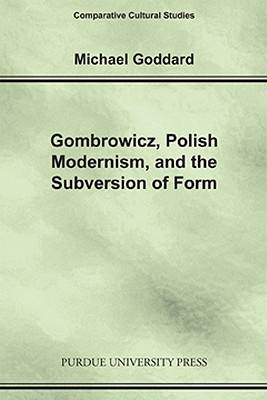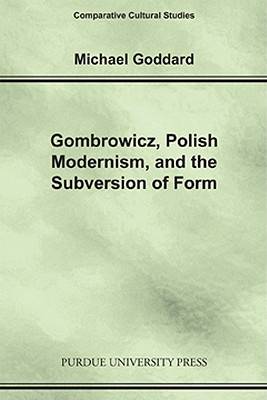
Door een staking bij bpost kan je online bestelling op dit moment iets langer onderweg zijn dan voorzien. Dringend iets nodig? Onze winkels ontvangen jou met open armen!
- Afhalen na 1 uur in een winkel met voorraad
- Gratis thuislevering in België vanaf € 30
- Ruim aanbod met 7 miljoen producten
Door een staking bij bpost kan je online bestelling op dit moment iets langer onderweg zijn dan voorzien. Dringend iets nodig? Onze winkels ontvangen jou met open armen!
- Afhalen na 1 uur in een winkel met voorraad
- Gratis thuislevering in België vanaf € 30
- Ruim aanbod met 7 miljoen producten
Zoeken
Omschrijving
Gombrowicz, Polish Modernism, and the Subversion of Form provides a new and comprehensive account of the writing and thought of the Polish writer Witold Gombrowicz. While Gombrowicz is probably the key Polish modernist writer, with a stature in his native Poland equivalent to that of Joyce or Beckett in the English language, he remains little known in English. As well as providing a commentary on his novels, plays, and short stories, this book sets Gombrowicz's writing in the context of contemporary cultural theory. The author performs a detailed examination of Gombrowicz's major literary and theatrical work, showing how his conception of form is highly resonant with contemporary, postmodern theories of identity. This book is the essential companion to one of Eastern Europe's most important literary figures whose work, banned by the Nazis and suppressed by Poland's Communist government, has only recently become well known in the West.
Specificaties
Betrokkenen
- Auteur(s):
- Uitgeverij:
Inhoud
- Aantal bladzijden:
- 228
- Taal:
- Engels
- Reeks:
Eigenschappen
- Productcode (EAN):
- 9781557535528
- Verschijningsdatum:
- 1/03/2010
- Uitvoering:
- Paperback
- Formaat:
- Trade paperback (VS)
- Afmetingen:
- 150 mm x 226 mm
- Gewicht:
- 272 g

Alleen bij Standaard Boekhandel
+ 91 punten op je klantenkaart van Standaard Boekhandel
Beoordelingen
We publiceren alleen reviews die voldoen aan de voorwaarden voor reviews. Bekijk onze voorwaarden voor reviews.











